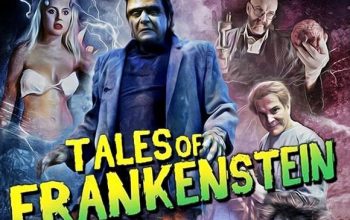Jurassic Park – 1993
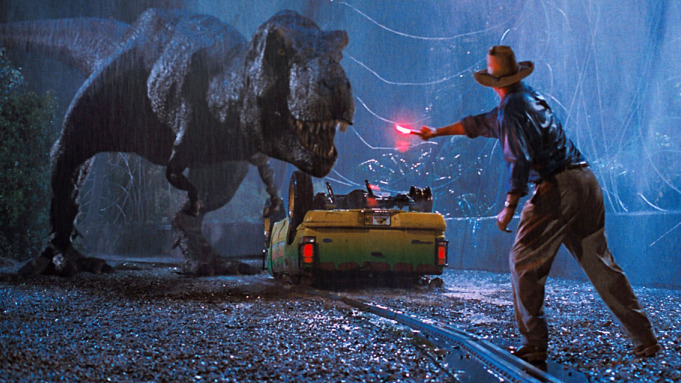
Usually I begin with a rundown of the plot of the film I’m looking at, generally going into more detail for the more obscure movies. With that in mind, I’m going to give the briefest rundown possible of Jurassic Park because, let’s be honest, you’ve definitely seen it.
John Hammond (Richard Attenborough) is a businessman who builds a theme park in which the main attractions are cloned dinosaurs. He brings in boffins Sam Neil, Laura Dern and Jeff Goldblum to look around and check that it’s all going okay. They see dinosaurs and it’s pretty cool.
But! There’s a counterplot in which Wayne Knight tries to steal the dinosaur DNA for some reason, but his meddling causes everything to go wrong.
Newman!
The dinosaurs run riot. Can our heroes and a couple of random kids stay alive and also prevent the dinosaurs from reaching the mainland where they will breed in large numbers?
Also it has Samuel L Jackson and BD Wong in it, which is pretty sweet.
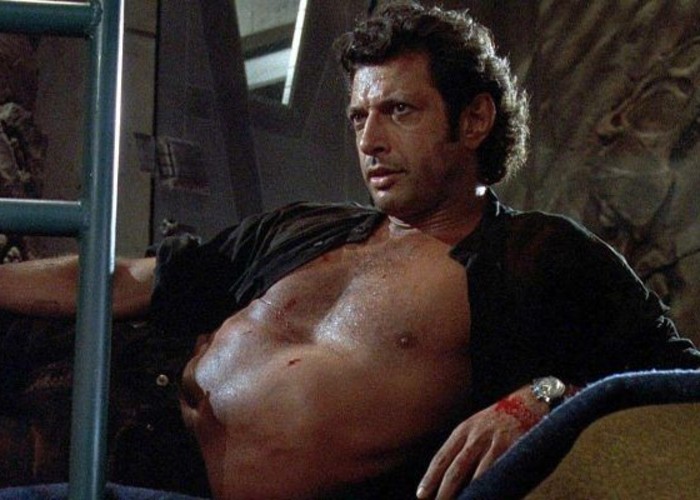
I can’t say that Jurassic Park is particularly original in terms of premise or plot. Films that pit humans against dinosaurs go back to the silent era. Jurassic park adds the wrinkle of ‘in an amusement park’ but even this isn’t altogether new. Cloned dinosaurs escaping from a theme part and running wild was a part of the backstory of Judge Dredd comics as early as the 1980s. Michael Crichton’s novel Jurassic Park does some interesting things with the idea, linking to contemporary (for the ‘90s) discussion of genetic research and chaos theory, but not much of this makes it into the movie. The plot is mostly a runaround, and while dinosaurs eating things is presented as the main threat, at least two serious problems are solved by dinosaurs eating things.
No, Jurassic Park’s strength isn’t in the ideas. It’s in the execution. The actors are all giving 100%, the direction – without being Spielberg’s best – is extremely strong. And holy crap, the effects! When I rewatched this movie, I was actually depressed. It’s nigh on thirty years old, but the effects hold up as well or better than a lot of recent effect-heavy movies. Looking at it, I could almost believe that there has been no progress made in film technology since the mid-90s. At the time it was released, the studio was really pushing the CG imagery as a selling point, since CGI was fairly new at the time. And yes, the CG holds up but it’s the clever mix of it with puppetry and other special effects that really sells the Park as a real place full of real dinosaurs. Contemporary CG is better in many ways, but so overused it often gives films a cartoonish quality – a quality wholly lacking in Jurassic Park.
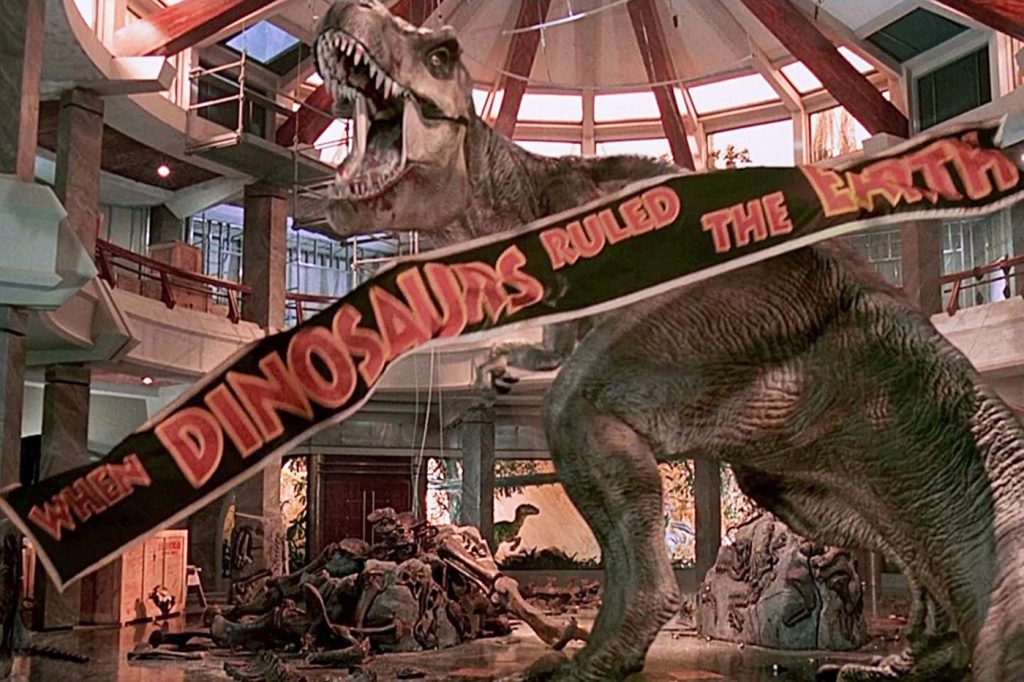
But why am I talking about it here, in a blog about Frankenstein movies? Well, the dead are brought back to life using technology, but then they turn on their creators, so sounds like a Frankenstein movie to me. But it goes a little further than that superficial similarity.
Mary Shelley set up the Frankenstein myth. But much of what we take for granted about that myth comes from later creators adding to it. Huge chunks of the mythos – Ygor, the extended Frankenstein family, the indestructible nature of the Monster, revivification through lightning, the Monster as a patchwork, the importance of the brain – these come from later interpreters of Mary Shelley’s work. Some are visible in Shelley if you sort of squint, but others are just created out of whole cloth.
On the other hand, there are elements of the novel Frankenstein that are often left out by later creators. One of these is the idea that the Monster might reproduce. James Whale and later creators looking at the role of the Bride go in different directions but in Mary Shelley’s original, Victor was terrified of creating a mate for the Monster specifically because he believed that this would lead to the creation of a race of Monsters.
Even if they [the Monster and the Bride] were to leave Europe and inhabit the deserts of the new world, yet one of the first results of those sympathies for which the dæmon thirsted would be children, and a race of devils would be propagated upon the earth who might make the very existence of the species of man a condition precarious and full of terror.
Victor Frankenstein
Though often dropped from direct adaptations of Frankenstein, it is present in Frankenstein-like stories such as Jurassic Park or Blade Runner. In these films, artificial beings are deliberately created in such a way as to prevent them from being able to reproduce without assistance. A key idea used in Jurassic Park is that the attempt to curtail dinosaur breeding was a failure. If our heroes were to fail, the dinosaurs would get to mainland South America and breed. We don’t even have to build them a bride — they figured that part out themselves because ‘life finds a way.’
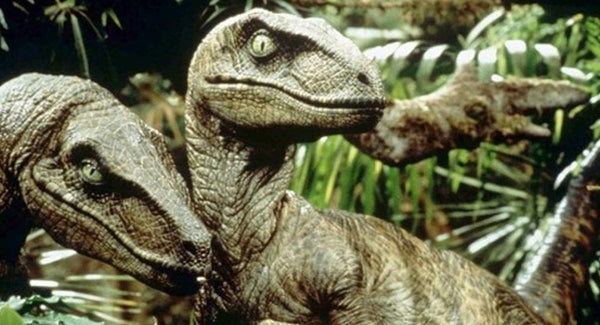
Clever girl
The fear of being ‘outbred’ is a horror staple, notably in zombie and vampire stories and in the Alien films, and it’s possibly one of the worst horror tropes. I enjoy horror, but I have to admit that for every delightfully ugly idea, there’s an actual genuinely ugly idea. There’s a real edge of racial paranoia in it. There’s a terror that too many of ‘them’ and not enough of ‘us’ will lead to death – or worse, powerlessness.
Jurassic Park avoids the worst of this by fixing this fear on velocoraptors, rather than anything humanoid or sapient. The arrival of the dinosaurs on the mainland would result in something more akin to a new feral species than an invading army. If we consider that wild dinosaur breeding is only possible because the creatures spontaneously overcome artificial breeding controls, we see that it is a different kind of paranoia – a (substantially more realistic) fear that nature will take its revenge on us.
And I think that the writers responsible for the more recent episodes of Jurassic Park-based entertainment products realise that this is actually an interesting direction to go. ‘Dinosaurs breed out of control’ has been moved from vague ‘this is what the stakes are’ threat to the actual premise of the next movie (Jurassic World 3: Noun), which is due out in 202-whatever. Who knows? Maybe it will be good. It’ll certainly be different.



